
How Lactation Supplements Can Help Moms Who Struggle with Breastfeeding
A high percentage of moms have issues with breastfeeding. From producing enough milk to getting the baby to latch to experiencing sore nipples, these are common concerns. Lactation supplements can be a big help in multiple ways for a breastfeeding mom.
What Are Lactation Supplements?
Lactation supplements can be pharmaceutical, but many are natural remedies that have been used for centuries. The purpose is to promote breast milk production by stimulating the creation of prolactin, a hormone that helps in creating milk in a pregnant or nursing mother.
Moringa benefits breastfeeding in this and other ways. It supports better overall nutrition for the mother, reducing stress and making feeding easier. Plus, the seed oil naturally heals cracked or sore nipples.
What do lactation supplements do?
These supplements fall into the category of a “galactagogue,” a substance that works within the hormonal system to stimulate prolactin. Prolactin is responsible for milk production in a breastfeeding mom. It’s very common for that hormone to get thrown off during pregnancy and the postpartum period. Lactation supplements help kick-start it.
The science behind lactation supplements
Whether they’re pharmaceutical or made from natural ingredients like Moringa, fenugreek, fennel, or brewer’s yeast, lactation supplements work as a galactagogue. This is a substance that helps the hormone prolactin stimulate breast milk production.
The stresses of being a new mom can result in a low milk supply. Everything from fatigue to temporary hormone imbalances can throw it off; this is where something like a Moringa breastfeeding supplement can help.
How Do Lactation Supplements Help as a New Mother?
One of the most common worries for new moms is producing a sufficient amount of milk to nourish their baby. That concern creates a cascading effect of unnecessary stress. Using a quality lactation supplement addresses that typical problem, helping both mom and baby to thrive during the breastfeeding journey.
With its essential vitamins, micronutrients, and antioxidants, a supplement like Moringa also supports mom’s energy levels and improves the nutritional quality of the milk.
Common Challenges Moms Face While Breastfeeding

For a process that’s natural, there are some very common challenges around breastfeeding. Insufficient milk, exhaustion, sore nipples, or trouble getting the baby to latch on. As a long-trusted lactation supplement, Go-Lacta Moringa offers these insights to ease your mind.
Low Milk Supply
Postpartum stressors can throw off your system and your milk supply. A lactation supplement can re-adjust your prolactin levels, the hormone that stimulates milk production, so that you always have enough.
Latching Difficulties
Help baby nurse by bringing him to your breast (versus the other way around). Help them find a wide latch onto the nipple by comfortably aligning their ear, lip, and shoulder. Use pillows if needed.
Nipple Pain or Soreness
Sore nipples are very common. Organic Moringa seed oil has antibacterial and anti-inflammatory properties to soothe and heal. Plus, it absorbs quickly, so that your baby isn’t struggling to latch on to a slippery surface.
Stress and Fatigue Impacting Milk Production
Managing stress and fatigue through proper nutrition and naps (when you can get them!) will assist in better milk production. Moringa is considered a “superfood” to support your body’s nutritional needs during the stresses of nursing
Common Galactagogues Moms Use to Boost Milk Supply
Over time, several foods and dietary supplements have been used to naturally increase breast milk. They may be taken as a tea, in capsules, or sprinkled into salads or soups.
Fenugreek
This herb is often taken as a tea. However, it often imparts a certain flavor to the breast milk, which some infants don’t enjoy. Also, if you have any thyroid issues, check with your doctor; fenugreek may interfere with its function.
Fennel
The seeds may be crushed, then steeped in hot water and taken as a tea. They may also be sprinkled into food or taken in capsule form. However, fennel may interact with other medications, so consult with a doctor before taking it.
Blessed Thistle
Commonly used as a tea, blessed thistle has been used to help with nursing. However, high doses may cause stomach cramps and nausea.
Moringa
Moringa is a nutritional “superfood” that also works as a galactagogue. Go-Lacta offers it in powder, capsule, or tea form.
Brewer's Yeast
Brewer’s yeast is a rich source of B vitamins and protein, thought to help with milk production.
Foods
Eating dark, leafy greens, whole grains like oats, healthy fats like olive oil, and lean proteins such as salmon can support milk production.
When and How to Use Lactation Supplements

It’s generally recommended to start taking lactation supplements about five days after giving birth. If you’re having trouble making enough milk or sustaining production, you might start a bit earlier.
Start on the low end of the recommended dosage to gauge how your body responds, then build to the full dosage. Consistency in taking these supplements is important for breastfeeding success.
Signs You Might Need a Supplement
If your baby isn’t gaining weight or isn’t producing enough dirty or wet diapers, that’s a sign a supplement might help. Also, if your baby still shows signs of hunger after nursing.
Dosage and Timing Tips
The dosage for supplements varies depending on which one you choose. For Moringa in capsule form, we recommend taking 2 capsules three times a day, with food, on average.
Working with a Lactation Consultant
When working with a lactation consultant, it’s important to share all your questions and concerns, track feeding habits, and follow their recommendations. It’s a journey, so give yourself the time to succeed!
Additional Tips for Increasing Milk Supply
Lactation supplements are but one tool for successful breastfeeding. There are other elements that can make it a wonderful, nurturing, bonding experience between moms and their little ones.
Staying properly hydrated is essential. A diet that fills in the nutritional gaps caused by the stresses of pregnancy and motherhood is another must. Staying consistent in either nursing or pumping helps the body establish a rhythm. The comfort of skin-to-skin contact helps produce oxytocin, which assists in producing breastmilk and helps the baby latch on.
Hydration and Diet
As a lactation supplement, Moringa covers these bases. By drinking Go-Lacta Moringa tea, you get much-needed hydration. And because Moringa is also a “superfood,” it supports the nutritional needs of a nursing mom.
Frequent Nursing or Pumping
Nursing or pumping regularly sends a signal to the body that milk production must occur. Create a schedule and stick to it.
Skin-to-Skin Contact and Relaxation
Besides bonding, the skin-to-skin contact between mother and baby releases oxytocin, a “feel-good” hormone that is very relaxing for both. It helps create breast milk and stimulates the let-down effect, helping the baby more easily find the nipple to latch on and nurse.

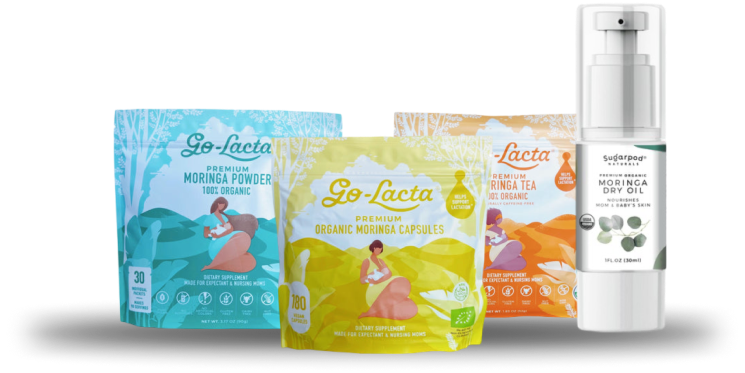
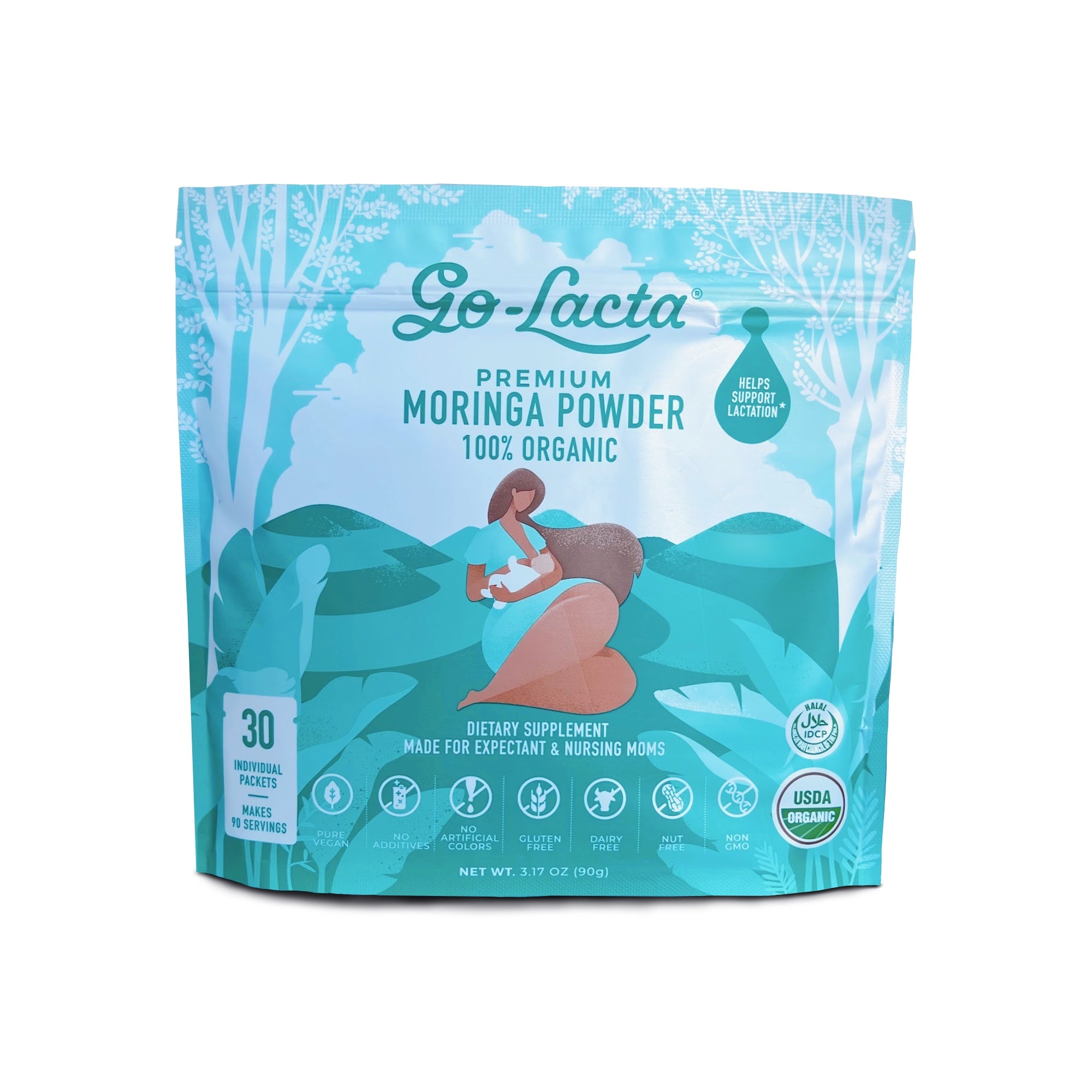
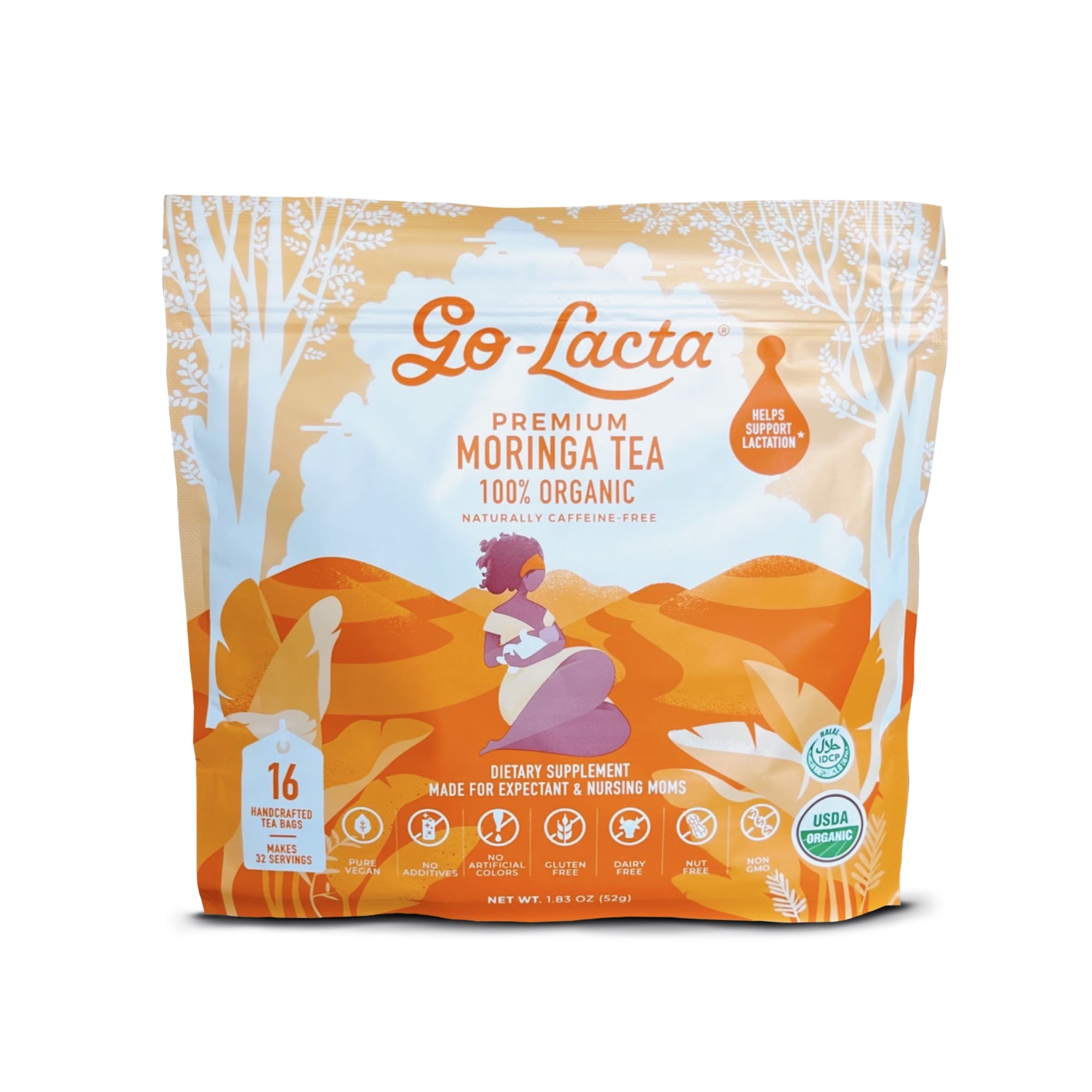
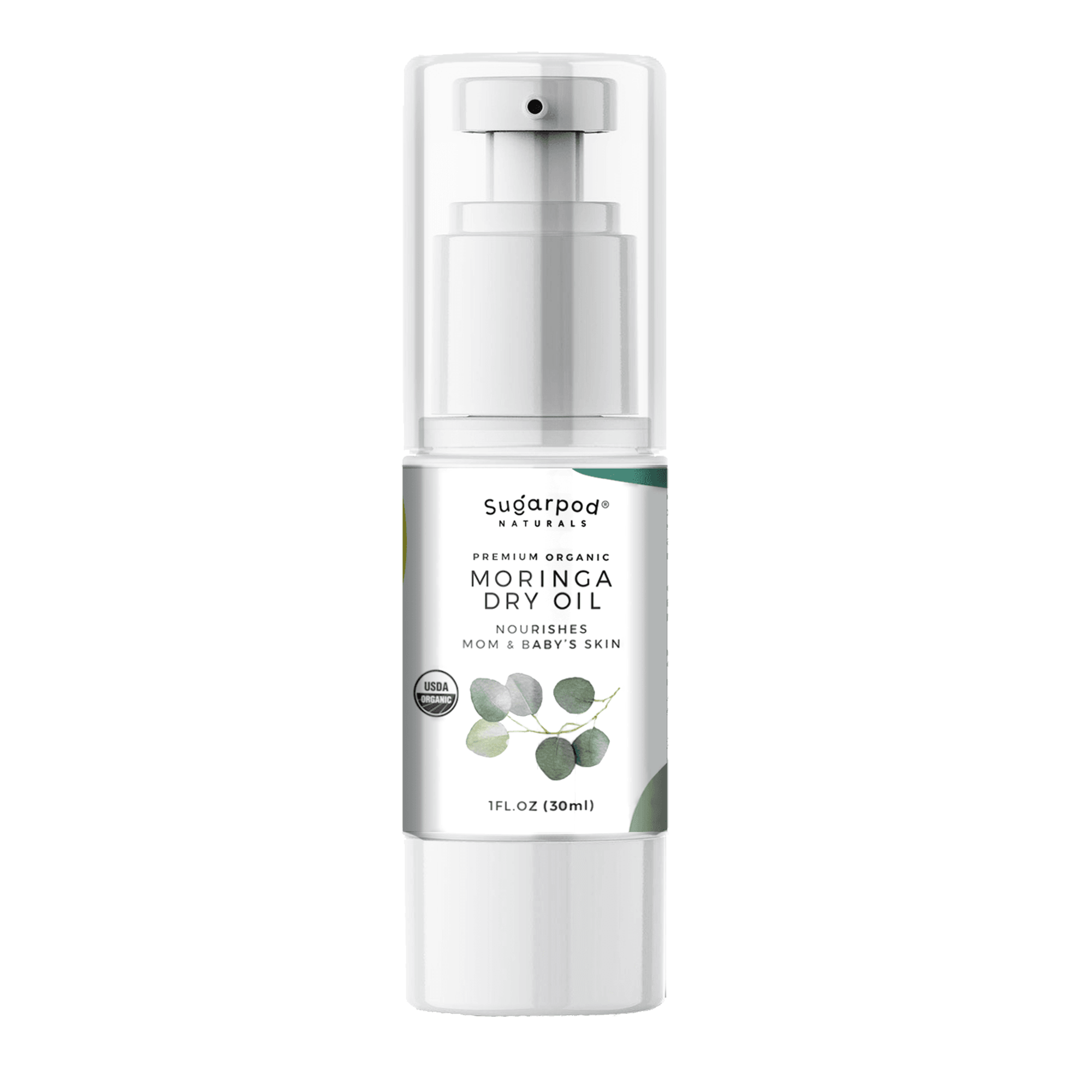

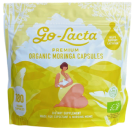





Leave a Comment
Your email address will not be published. Required fields are marked *